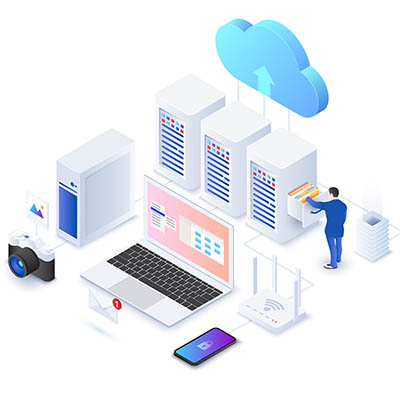It’s never a good time to deal with budget cuts, and unfortunately, due to its large costs and investments, technology management, maintenance, and infrastructure are often a victim of them. Let’s go over how you can lessen or mitigate the hit you take when dealing with an IT budget cut.
Technology is not cheap, especially not business technology that has features that the average user might not find much value in. To help you keep your business from investing in the wrong solutions or spending unnecessary capital on solutions you won’t find useful, we’ve put together some of the common places where businesses like yours might accidentally waste hard-earned funds.
The world has become reliant on technology for countless tasks, even to the point where businesses and individuals alike depend on technology just to go about their daily tasks. The big question, though, is whether people are happier with all this technology in their lives. Let’s go over how technology has impacted society as a whole in relation to people’s feelings.
The telephone cemented itself as a valuable tool of business long ago, but the ways that businesses use these devices have changed over the years. Thanks to advancements in technology, telephones can still be used by businesses even today, albeit with some modern adjustments to stay competitive and useful. One of these telephony solutions is Voice over Internet Protocol, or VoIP for short.
Artificial intelligence and machine learning are entering the mainstream technology discourse, and with software developing the ability to learn from datasets, many businesses are using this technology to automate their processes to cut down on costs and better use their current resources. There is a lot of good that comes from this, but only when you look past these benefits can you start to see the drawbacks, including an important one called “data poisoning.”
Despite not wanting to think about cybersecurity incidents derailing your operations, it’s important nevertheless to consider them before it’s too late to do anything about them. These days, businesses need to invest considerable capital into protections, including a cyber insurance policy to cover all of their bases. Let’s discuss some of your options for cybersecurity insurance and what you’ll need to know to make the most informed decisions possible.
Social media can be difficult to navigate due to how overstimulating it can be. Sometimes it is beneficial to unfollow people or pages that are either no longer relevant to you or are not doing anything for your mental health. To help you detox your social media feed a little bit, let’s discuss how you can unfollow someone on Facebook.
Password. 123456. Guest. Qwerty. These are just a few examples of passwords that are, in a word, terrible. To help you avoid using passwords like these, let’s go over what a good password is and how to choose one—starting with what you need to avoid.
The cloud has been a good resource for business for quite a while. Just how good? Currently, nine-out-of-ten businesses operate with some type of cloud-hosted solution. In fact, by the figures, we’re definitely looking at a cloud-hosted future. We thought it would be interesting to take a look at some of the cloud computing stats and trends to paint a picture of just how the cloud has grown up.
Most people look at only the first page of Google when they are trying to find results; anything seen past the first page is looked at as inferior, inaccurate, or possibly even dangerous. However, Google’s new plans for the search engine will put an end to this bias through the use of a continuous scroll feature.










